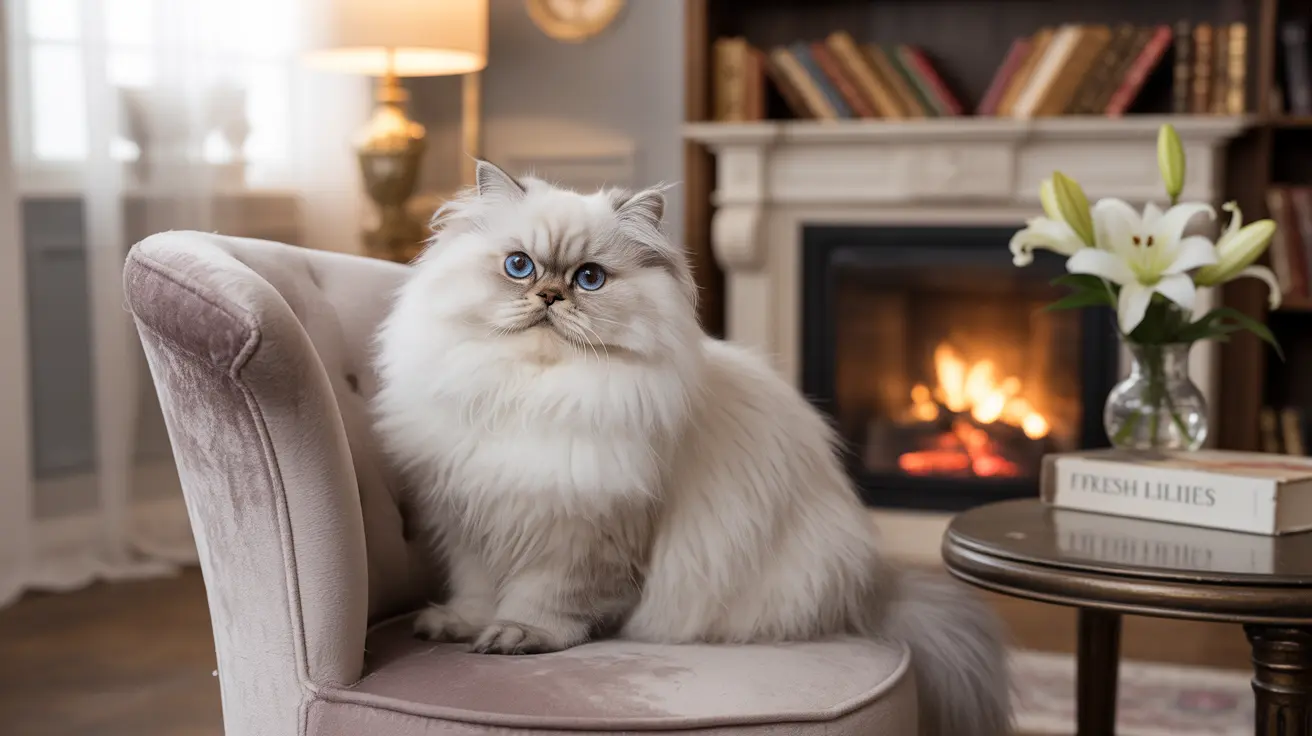The Science Behind Cat Purring
Purring is a fascinating biological mechanism involving multiple body systems. The sound originates from rapid muscle twitches in the larynx (voice box), controlled by signals from the brain's neural oscillator. These muscles contract and relax at frequencies between 25-150 times per second, creating the distinctive purring sound during both inhaling and exhaling.
Why Some Cats Don't Purr: Natural Variations
Just like humans have different voices and communication styles, cats vary in their purring behavior. Some cats naturally purr very softly or infrequently, while others might not purr at all. This variation can be influenced by genetics, breed characteristics, and individual personality traits.
Breed-Specific Tendencies
Certain cat breeds are known to be quieter or less likely to purr frequently. This doesn't indicate any health issues - it's simply part of their natural disposition. For example, some Persian cats are known to purr less than their Siamese counterparts.
Medical Reasons for Lack of Purring
When a typically vocal cat suddenly stops purring, it might indicate an underlying health issue. Common medical causes include:
- Upper respiratory infections
- Dental disease
- Laryngeal problems
- Throat injuries
- Neurological conditions
These conditions can make purring uncomfortable or physically impossible for your cat.
Behavioral and Environmental Factors
Cats may stop purring due to various environmental and emotional factors:
- Stress from household changes
- Anxiety about new pets or people
- Changes in daily routine
- Unfamiliar environments
- Fear or feeling threatened
When to Be Concerned About Your Silent Cat
While a non-purring cat isn't always cause for alarm, certain situations warrant veterinary attention:
- Sudden cessation of purring in a normally vocal cat
- Changes in purring accompanied by other behavioral changes
- Additional symptoms like lethargy, appetite loss, or hiding
- Visible signs of pain or discomfort
Alternative Signs of Cat Contentment
Even if your cat doesn't purr, they may show happiness and comfort through other behaviors:
- Slow blinking
- Kneading with paws
- Rubbing against you
- Relaxed body posture
- Tail held high with a slight curve
Creating a Purr-Friendly Environment
To encourage natural behavior and potentially stimulate purring:
- Maintain a consistent daily routine
- Provide quiet, safe spaces
- Engage in gentle play and interaction
- Offer comfortable resting areas
- Minimize household stressors
Frequently Asked Questions
Why do some cats stop purring suddenly?
Cats may stop purring suddenly due to illness, injury, stress, or environmental changes. Any abrupt change in purring behavior, especially when accompanied by other symptoms, should be evaluated by a veterinarian.
Can a cat's lack of purring be a sign of illness or stress?
Yes, while some cats naturally purr less than others, a sudden change in purring behavior can indicate illness, pain, or stress. It's important to consider this change alongside other behavioral and physical symptoms.
How can I encourage my cat to purr if they rarely do?
Create a calm, safe environment and engage in gentle interactions like soft petting and quiet playtime. However, remember that some cats may never purr frequently, and that's perfectly normal.
What are common health issues that might prevent a cat from purring?
Common health issues affecting purring include respiratory infections, dental problems, laryngeal conditions, throat injuries, and neurological disorders that affect muscle control or nerve function.
Why do cats purr when they are stressed or injured, and what does it mean if they stop?
Cats sometimes purr as a self-soothing mechanism when stressed or injured, as purring frequencies can promote healing. If an injured cat stops purring, it might indicate severe pain or distress requiring immediate veterinary attention.
Conclusion
While a non-purring cat might seem unusual, it's not always a cause for concern. Understanding your cat's normal behavior patterns and watching for additional signs of distress will help you determine whether veterinary intervention is necessary. Remember, every cat is unique, and there are many ways they express contentment beyond purring.






